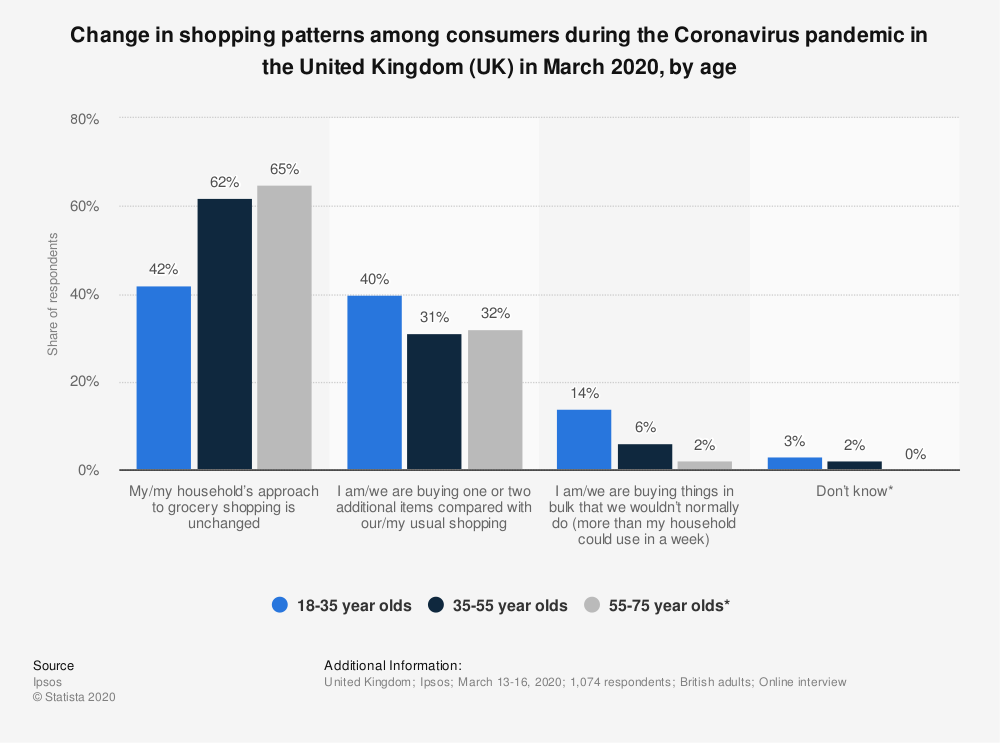The 16th of March 2020 was a revealing day for marketers. Day 1 of the UK national lockdown, shelves were left empty and the perceived value of toilet roll had never been higher. The Covid pandemic had highlighted the judgement and rationality of consumers.
This article aims to shed light over who, what and why people panic buy as well as the future impacts created.
Who?
Research by Ipsos found the least vulnerable age group to the virus (18-35 years old) were most likely to change their shopping habits and purchase things they normally wouldn’t do.
What?
39% of respondents said they thought it was acceptable to buy at least one of the items listed below in bulk, during March 2020.
Paper products and home care products had the highest growth value over the non-edible consumer goods in the UK.
General merchandise and cosmetics had the biggest drop in value.
Marketers now have a clear indication over what items were, and were not left on shop shelves, therefore impacting their future potential value.
Why?
Is this a natural or irrational reaction? What is the psychology behind panic buying?
Scarcity creates value
In a previous blog post I explained how scarcity increases perceived value. With events like natural disasters, such as a hurricane or flood, people rationally stock up with emergency supplies. However, stocking up on hundreds on cans of beans before a 2-week isolation period doesn’t seem rational.
Individuals’ perception of a threat of a crisis and the scarcity of products impact the fear of the unknown, caused by emotions of uncertainty. Panic buying is a coping behaviour, caused by a lack of perceived control (1).
This suggests a psychological mechanism is in place to deal with consumer fear and uncertainty.
Media sensationalism
Excessive play in social media and news media, amplifies the sense of scarcity and increases the sense of urgency, which worsens panic buying.
Mentions of ‘out of stock’ alongside a store name:
Younger consumers have higher social media consumption, so could be more susceptible to media influence and panic buying- a form of individualistic behaviour.
Individualistic behaviour can be created from a loss of feeling as part of a community during a crisis. Dr Clifford Stott, a consumer psychology expert, suggested the media should try to create a ‘collective society’, not blame consumers and be divisive when it comes to publishing news about panic buying.
Future impact
The covid pandemic has caused the biggest disruption to the UK since World War II, high income families haven’t had to worry about food shortages in generations. People were accustomed to eating whatever they wanted, when they wanted.
These consumers will now have to get used to having less choice and freedom over what they can buy.
A lack of food availability and reduced income will continue to increase the vulnerability of the less well-of in the UK. There has already been a surge in the use of food banks and more will be need to be done in terms of donations and support.



